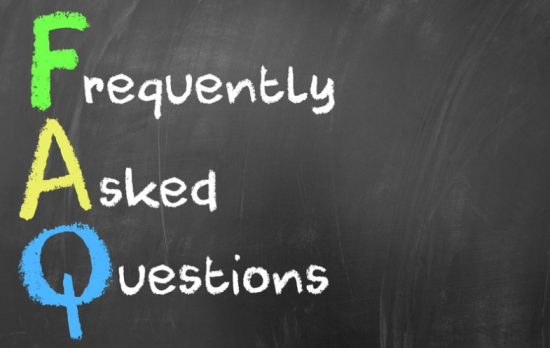Are you currently receiving Employment Insurance (EI) benefits in Canada and wondering how many hours you can work while still maintaining your eligibility? Look no further! In this blog post, we will delve into the guidelines for working while on EI, so you can make informed decisions about your employment situation.
Whether you’re a part-time worker or someone seeking additional income during your EI claim period, we’ve got all the information you need to know. So, let’s dive right in and uncover the ins and outs of balancing work and EI benefits!
EI (Employment Insurance) Eligibility in Canada

If you find yourself recently unemployed in Canada, you may be wondering if you qualify for Employment Insurance (EI) benefits. The government sets out the eligibility criteria to ensure that those who truly need financial support during their job search can access it.
To qualify for EI benefits, a few requirements must be met. First and foremost, you must have worked a certain number of insurable hours within the last 52 weeks before your claim. The required hours depend on your region and local unemployment rate.
Furthermore, you must not have been at fault for losing your employment. This means that if you were terminated or laid off due to reasons beyond your control – such as company downsizing or restructuring – then you should meet this criterion.
It’s important to note that certain circumstances may disqualify individuals from receiving EI benefits. For example, if you voluntarily quit your job without just cause or were fired for misconduct, these actions could impact your eligibility.
How to Apply For Employment Insurance in Canada?
If you are eligible, getting started with Employment Insurance in Canada is as easy as gathering the necessary documents and following the steps.
- You can find more information about EI on Service Canada’s website or by calling their toll-free number.
- When submitting your application, ensure all required documentation is ready and prepare to provide reasons for your unemployment.
- After approval, you will receive a statement with details on how much money you are entitled to and instructions on how to access your benefits.
- Keep an eye out for any updates related to EI policies and requirements so that you remain compliant. If necessary, don’t be afraid to ask a professional for advice.
How Many Hours Are You Allowed to Work While on EI?
One common question regarding Employment Insurance (EI) in Canada is how many hours you are allowed to work while receiving benefits. It’s an important consideration for those who are looking for part-time employment opportunities while still relying on EI.
The answer to this question is that you can work while on EI, but there are some restrictions in place. In Canada, a full-time job requires at least 40 hours of work per week. Your benefits will continue as long as your weekly work hours don’t exceed 40.
Generally, if your weekly earnings from employment exceed 50% of your weekly benefit rate, a portion of those earnings will be deducted from your EI payment.
To determine the amount that will be deducted, Service Canada applies what is known as the “earnings threshold.” This threshold varies depending on individual circumstances, such as family size and other factors. Any income earned above this threshold will result in a reduction in your EI payment.
How Does Working Impact Your EI Claim?

Working while receiving Employment Insurance (EI) benefits can have an impact on your claim. Understanding how this can affect your eligibility and the amount of income you receive is important.
- When you work while on EI, any earnings from employment are typically deducted from your benefits. The government uses a formula to calculate how much to deduct based on your earnings and the type of work you’re doing. This means that if you earn more than a certain threshold, your EI payments may be reduced or even eliminated.
- Additionally, working while on EI can also affect the duration of your benefits. If you continue working for an extended period or start earning a higher income, it could shorten the time you’re eligible to receive EI payments.
- It’s important to report any work or income changes promptly and accurately to Service Canada so they can adjust your benefit payments accordingly. Failure to do so may result in penalties or even repayment of overpaid benefits.
- Working while on EI can impact your benefit payments’ amount and duration. Awareness of these potential effects is crucial to ensure compliance with program rules and avoid financial penalties.
How Long Can You Get EI Benefits?
If you find yourself unemployed and in need of financial assistance, Employment Insurance (EI) benefits can provide some relief. However, it’s important to understand how long these benefits will last.
The duration of EI benefits depends on several factors, including your specific situation and region. Generally, there are two types of EI benefits: regular and special.
- Regular EI benefits typically last for a maximum of 26 weeks. This timeframe may vary depending on the number of insurable hours you have accumulated over a certain period. To be eligible for regular EI benefits, you must have worked a minimum number of hours within the past year.
- Special EI benefits are available to individuals who cannot work due to specific circumstances such as sickness, pregnancy or caring for newborns or adopted children. The duration of these benefits varies depending on the situation but can extend up to 15 weeks or longer in exceptional cases.
It is crucial to note that while receiving EI benefits, you must actively seek employment and be ready and willing to accept suitable job offers. Failure to do so could result in your benefit payments being discontinued before reaching the maximum allowable duration.
Remember that each case is unique, so it’s essential to consult with Service Canada or visit their website for detailed information about your eligibility and benefit entitlements based on your specific circumstances.
Can I Work While on Employment Insurance (EI)?
One of the most common questions people have when they are receiving Employment Insurance (EI) benefits is whether or not they can work while still being eligible for those benefits. The answer is yes, you can work while on EI, but there are certain rules and regulations that you need to follow.
If you find a job or have part-time employment opportunities while on EI, it’s important to report your earnings to Service Canada. This will ensure that your benefits are adjusted based on your working income. It’s crucial to be honest and transparent about your earnings as failing to do so could result in penalties or even loss of eligibility for future benefits.
It’s also worth mentioning that any income earned through self-employment must also be reported. Whether you’re freelancing, running a small business, or doing odd jobs here and there, make sure to keep track of all your earnings.
Keep in mind that working while on EI may affect the amount of money you receive from your benefits. Generally speaking, for every dollar you earn above 90% of your previous weekly insurable earnings (called the “earnings threshold”), 50 cents will be deducted from your EI payment.
What Happens if You Work While on EI?

What happens if you work while on EI? This is a common question that many people have when they find themselves in this situation. The answer is not as simple as it may seem, and several factors must be considered.
If you work while receiving Employment Insurance (EI) benefits, your earnings will be taken into account when determining the amount of your benefit payment. In other words, any money you earn from working will be deducted from your EI payments.
The government has implemented what is known as the “earnings threshold” or “working while on claim” provisions. Under these rules, you can earn a certain amount of money without affecting your eligibility for EI benefits. The earnings threshold is set at 90% of your previous weekly earnings before taxes.
It’s important to note that if you exceed this earnings threshold, your EI benefits will be reduced dollar-for-dollar for every dollar earned above the threshold. This means you won’t receive any additional benefit payment if you earn more than 90% of your previous weekly earnings.
Conclusion
Gaining an understanding of the regulations that come with working while on Employment Insurance (EI) in Canada is key for those looking to take advantage of the financial support it offers. Generally, part-time work can be done without impacting benefits as long as certain eligibility criteria are met.
Nonetheless, any income earned will be taken into account when calculating the weekly benefit amount – meaning a smaller EI payout may result from higher wages obtained from a job. Still, even if more is earned than your weekly benefit amount, you could be qualified for additional weeks of EI in some cases.
FAQs – How Many Hours are you Allowed to Work While on EI
1. How much can I earn on EI?
The basic rate used to determine Employment Insurance (EI) benefits for the majority of persons is up to a maximum of 55% of their average insurable weekly earnings. The maximum amount of yearly insurable wages as of January 1, 2023, is $61,500. This means that the most you might get each week is $650.
2. Can I extend my EI benefits?
Unless a claimant qualifies for a benefit period extension, EI benefits are not payable after the initial 52-week period. The extension gives the claimant a longer window of opportunity to obtain the weeks of benefits for which they could be eligible.
3. How do I know when my EI runs out?
If you receive all the weeks of benefits you were entitled to, and your benefits will terminate. The period during which you may obtain benefits for payments expires. Your biweekly report has been stopped.
4. How many weeks does EI hold back?
There is a week before you begin getting benefits for which you won’t be paid. We refer to it as the waiting period. It is comparable to the insurance deductible you pay for other forms of coverage.











